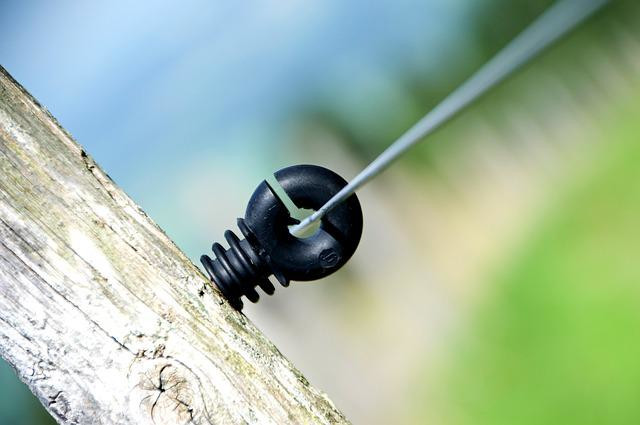
Everything You Need to Know About Electric Fence Insulators
If you are planning to build an electric fence, whether it’s for security or something else, you’re going to need a few components. One of the least high-tech but most critical components of any electric fence is the electric fence insulator.
Let’s take a closer look at what electric fence insulators are, how they work, where they are used, and other important information.
What Are Electric Fence Insulators For?
When it comes to what electric fence insulators are for, the answer is really in the name.
Electric fence insulators are used to keep electric fence wires from touching the rest of the fence. This is important because an electric fence needs to be a complete circuit, so short circuits on the fence will affect operation.
You also don’t want your live electric fence to be touching any metal components of your fence because if it does, they will probably become live, which could affect the safety of your fence for people and pets.
What Are Electric Fence Insulators Made Of?
Electric fence insulators are made from a variety of materials, but the most important thing is that they are not conductive.
So you might find insulators made of a special type of porcelain, plastic, fibreglass or nylon, depending on the type and use of the insulator.
What Kind of Electric Fence Insulators Are There?
There are electric fence insulators that are designed for use on many different types of posts.
Some are screw-in insulators, which are a popular choice for wood fences. There are also insulators that are designed to be slipped onto fibreglass fence poles or even clipped onto chain link mesh.
Many fences use nail-on insulators, although when they are used on metal fences, they’re more likely to be screwed or riveted in place.
There are also strain insulators, which are used at corners and ends, usually along with some type of tensioning device.
If you’re not sure what kind of insulators you need, most electric fence suppliers and installers will be able to advise you which ones would work best for your fence type.
How Many Electric Fence Insulators Do You Need?
Usually, you will need the same number of electric fence insulators per line post as you have electric fence wires. So if you have a four-strand electric fence, you will need four insulators per line post.
You will also need strain insulators at each tension post, and for that, you will require one insulator per wire, per direction of strain. So if you have four wires and you are insulating a corner post, you would need eight strain insulators.
How Do You Maintain Electric Fence Insulators?
Electric fence maintenance is actually one of the most important things you need to do to ensure your fence keeps working well.
Over time, insulators can crack, or fasteners can come loose. Sometimes, depending on the climate, they can even grow moss or algae, which could change their insulating properties.
It’s a good idea to do a regular walk around any electric fence and look for any insulators that are damaged or dirty and to clean, repair or replace them as necessary.
It’s also a good idea to order an extra stock of insulators for this job. That way, you can do a quick repair when necessary without waiting for parts or a service technician! Just remember to switch the fence off while you work on it, or you might have a shocking day!


